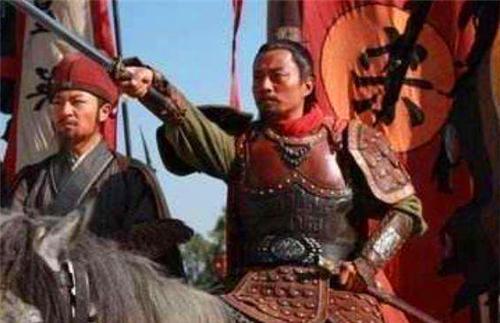If you have read the "Water Margin" readers, for the role of Song Jiang must be no stranger, although it is a novel, but in history, there is indeed the existence of Liangshan Po, but Song Jiang as the leader of the Peasant Rebellion of the Northern Song Dynasty, and most of the rebel army is also a resident near Liangshan, but the Song Jiang forces did not rely on Liangshan to fight against the official army, and in 1120, the Song Jiang troops were forced to accept Zhao'an under the siege of Zhang Shuye in Haizhou Zhizhou, and he did not yield in 1122, trying to rebel again. As a result, he was suppressed by Song Jiang, and he also ended up with a different head.

So in real history, after Song Jiang led the good han to accept Zhao'an, who occupied Liangshan Po? In fact, many people can't imagine that a big hero was born for this, his name is Zhang Rong.
In the 1210s, the Jin Dynasty invaded, the Song Dynasty for many years without soldiers, was not a rival of the Jin Dynasty at all, after the shame of Jing Kang, the Kang King Zhao Zhuo established the Southern Song Dynasty regime in the south, and the Jin people did not give up the pace of invasion, and in 1128, the Jin army continued to attack Shandong.
At this time, Liangshan Po also became the coverage of the Jin Army, and Zhang Rong, who was born as a fisherman, was not willing to be a subjugated citizen, he was born bold, and he raised his arms in the local area, recruiting hundreds of nominal troops, and Shangliangshan and the Jin army competed with each other.
From then on, Zhang Rong began a career of guerrilla warfare behind enemy lines, and with his proficiency in terrain and his subordinates attacking the logistics units of the Jin army, burning grain and grass, and providing information on the Song army, he was greatly troubled by the Jin Dynasty. In October 1128, Jin soldiers captured Zhang Rong's hometown of Qingfu (present-day Yanzhou). Zhang Rong led the Liangshan Po Water Army, with the cooperation of fishermen, to engage in a fierce battle with the Jin Army. He defeated the Jin soldiers of Yan Changbu, but he also suffered heavy losses.
Zhang Rong received the commendation of the Song court, was named a martial arts master, The History of Chungju, but in 1129, after the Jin army captured Yangzhou and The Song Emperor Gaozong fled to Hangzhou, Zhang Rong became more and more difficult to gain a foothold in the Liangshanbo area, so he also began a strategic migration, he used the Song Dynasty banner, recruited troops and horses along the way, built a water village in the waters of Tan Lake north of Chengzhou (Gaoyou, Jiangsu), and made contact with the Song Dynasty defender Xue Qing, becoming a horn to defend against the Jin army's attack.
However, under the attack of the superior strength of the Jin army, the city of Chengzhou was destroyed, and Zhang Rong's lone army was invincible, so he could only retreat to Tongzhou and Taizhou with the rest, and then came to Shrink head lake to confront the Jin army.
Because Zhang Rong's attack on the waterway brought great difficulties to the deployment of the Jin army commander Guanyan Chang to cross the river south, he decided to personally lead more than 10,000 people of the Jin Dynasty's water division to Shrink head lake to completely eliminate Zhang Rong's forces.
Zhang Rong took advantage of the inflexible characteristics of the Jin warships to introduce them into the swamp to fight, causing the Jin soldiers to "fall into the mud and unable to extricate themselves", at this time Zhang Rong took the ambushed small boats and killed them all together, the Jin army was defeated, and Yan Chang's son-in-law, Wanfu Chang, Pu Cha Baolu, was captured. Only about 2,000 people remained in Yanchang and fled. The Battle of Shrunkou Lake can be said to be an unprecedented victory after the founding of the Southern Song Dynasty, Zhang Rong also withdrew in time after the victory, under the command of Liu Guangshi, as the Right Wu Dafu, Chungju Defense Envoy, he and 4029 soldiers, were rewarded by the imperial court, and the Shrinking Lake was also renamed Victory Lake from then on.
Zhang Rong's heroic deeds are also worth remembering for all of us.